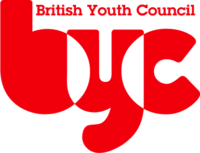Last week Elif and I attended and contributed to the 12th Commonwealth Youth Forum (CYF) in Kigali, Rwanda (admittedly, it was our first-time meeting in person!). The Youth Forum was one of the four significant forums (Women’s, Business and People) that preceded the Commonwealth Heads of Government Meeting (CHOGM). The Youth Forum consisted of 3 days of fast-paced, intensive youth plenary sessions and capacity-building exercises. It brought together many of the Commonwealth’s best and brightest young people from each member state and a plethora of Commonwealth youth networks. This included the Commonwealth Youth Council (CYC), the Commonwealth Students Association (CSA), the Commonwealth Youth Gender and Equality Network (CYGEN) the Commonwealth Youth Health Network (CYHN) and more.
First of all, let’s start with Rwanda. On the first day, we were introduced to the beautiful city of Kigali- which is appropriately labelled as one of the cleanliest cities in the world. It certainly lived up to its title with its neatly cut hedges, paucity of litter and volunteer street cleaners. As we became acclimatized to the culture, it became customary to say “Murakoze” (meaning ‘Thank you’ in Kinyarwandan) to the amazing support staff who assisted us throughout our time in Kigali. Whether it was the police staff who escorted our travel or the conference staff who facilitated our sessions, everyone was generally very welcoming.
One highlight for me- taking part in the sustainability workshop- was the wealth of innovative ideas that arose from the delegates. One idea focused around using biomass briquettes as a alternative and cleaner energy source for cooking as opposed to the traditional fuels like charcoal. Biomass briquettes emit less carbon than traditional cooking fuels and therefore, would contribute to lower net total greenhouse gas emissions. This was particularly pertinent to countries in the global south- that might not have access to cooking fuels.
Additionally, the plenary sessions provided rare opportunities to hear from political, economic, technological experts such as the CEO of the Mastercard Foundation- Reeta Roy, CEO of MTN Rwanda- Mitwa Ng’ambi, Bahamian Minister of Youth, Sports and Culture- Mario Bowleg and the Secretary-General of the Commonwealth Secretariat- Patricia Scotland. They all provided very optimistic outlooks for the future of young people and imparted key advice on how young people can start to ‘take charge of our future’- the theme of this year’s youth forum.
“You are not tomorrow’s leaders. You are the leaders of today.”
Rt Hon Patricia Scotland
As national youth delegates to the Commonwealth Youth Council, we were eager to vocalize and represent the opinions and needs of UK Youth. In particular, I voted, as the first mover, to adopt the Commonwealth Youth Declaration and the subsequent action plan. This dossier was formulated from a variety of resolutions and pan-regional youth charters to serve as a vision paper for commonwealth youth in the coming years. It cut across six key themes that are hugely pertinent to young people: governance, trade & entrepreneurship, human capital development, sustainability, health, and digital innovation.
The key actions adopted from the general assembly revolved around improving accountability in governance mechanisms; reducing plastic waste using new IOT Technology (Internet Of Things); increasing public and private co–operation to improve mental health provisions; dealing with the refugee crisis and providing a digital marketplace for commonwealth artists.
I also stressed the need for the declaration to become something that is substantive and not just ceremonial- calling upon the general assembly to enforce this declaration after it had been committed to by the Heads of Government.
Additionally, Elif tabled a strong motion to improve the accountability procedures within the Commonwealth Youth Council which was a great success and received widescale approval by the general assembly. It stressed the need for the executive committee (an elected group of young people tasked with overseeing the youth council) to provide more frequent reports. Additionally, the motion included the need for increased engagement within the Commonwealth Youth Council and other Commonwealth networks.
While the Youth Forum provided a successful opportunity for young people across the Commonwealth to contribute to policy-making and build international networks, it shed light on few challenges within the make-up of the youth council. In particular, it shed light on the unfortunate fate of the overseas territories that do not have the ability to vote in the Commonwealth Youth Council general assembly, but also the ineffectuality of the Commonwealth Youth Council when it doesn’t/ can’t reach a quorum- the minimum number of members of an assembly or society that must be present at any of its meetings to make the proceedings of that meeting valid.
“We need to keep making sure that when you talk about the Commonwealth, you mean the commonwealth; not just being common to a few, so everyone in the Commonwealth family feels they are part of it. So even those at the lower level feel not left behind.”
Paul Kagame
In response to these challenges, UK Young Ambassadors pledge to work to ensure that overseas territories can gain voting rights within the Commonwealth Youth Council – showing solidarity with our friends in Gibraltar, Anguilla, Bermuda and elsewhere etc. We also pledge to rally our friends in the general assembly to help us achieve quorum at each meeting by attending more frequently.





